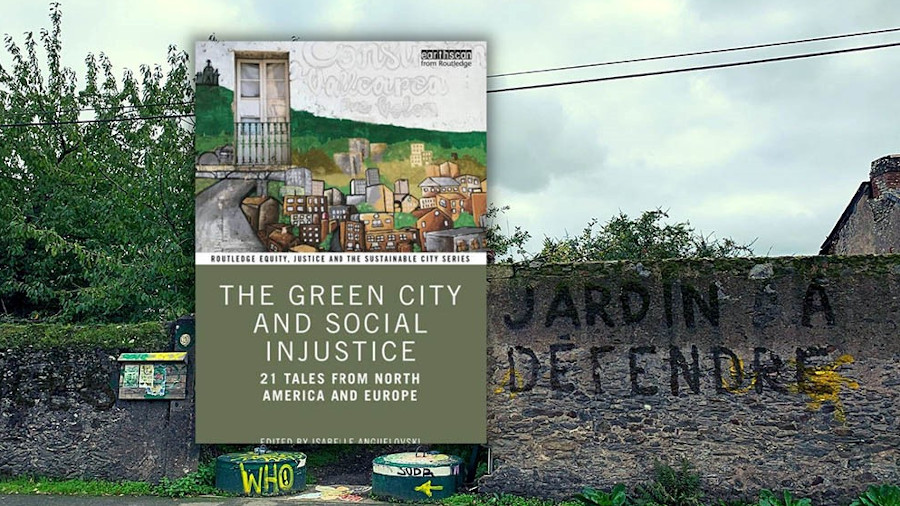New book on green cities and social injustice by Isabelle Anguelovski
“The Green City and Social Injustice” is the new book written by ICTA-UAB researcher Isabelle Anguelovski alongside James Connolly, and published by Routledge. In this volume, which was released on 30 November, a collective of researchers examines the recent urban environmental trajectory of 21 cities in Europe and North America over a 20-year period. The aim is to identify the circumstances under which greening interventions can create a new set of inequalities for socially vulnerable residents, while also failing to eliminate other environmental risks and impacts.

Based on fieldwork in ten countries and on the analysis of core planning, policy and activist documents and data, the book offers a critical view of the growing green planning orthodoxy in the Global North. It highlights the entanglements of this tenet with neoliberal municipal policies including budget cuts for community initiatives, long-term green spaces and housing for the most fragile residents, and the focus on large-scale urban redevelopment and high-end real estate investment. It also discusses hopeful experiences from cities where urban greening has long been accompanied by social equity policies or managed by community groups organizing around environmental justice goals and strategies.
The book examines how displacement and gentrification in the context of greening are not only physical but also socio-cultural, creating new forms of social erasure and trauma for vulnerable residents. Its breadth and diversity allow students, scholars and researchers to debunk the often-depoliticized branding and selling of green cities and reinsert core equity and justice issues into green city planning—a much-needed perspective. Building from this critical view, the book also shows how cities that prioritize equity in green access, in secure housing and in bold social policies can achieve both environmental and social gains for all.
Isabelle Anguelovski explains that the book is addressed to students, scholars, activists and planners. “We hope this can serve as testimony to debunk the green city branding and hype that so often hides profit-driven interests and perpetuates inequalities”, says Anguelovski, who highlights that “if equity and justice are not at the core of green planning, then the healthy green city is just a myth”.
Co-editor James Connolly says that “the green city is not simply about addressing ecological concerns, as it is sometimes framed. It is also about who gets to benefit from the city, whose cultural preferences win out, and who has a physical and psychological place in the city”. The stories told in this book help to uncover these less visible issues.
This critical assessment also aims to show how prioritizing equity in access to green space and secure housing, together with bold social policies, can achieve environmental and social benefits for all citizens.
The other co-authors from the BCNUEJ group at ICTA-UAB are Lucía Argüelles, Francesc Baró, Helen V.S. Cole, Melissa García-Lamarca, Jordi Honey-Rosés, Panagiota Kotsila, Austin Matheney, Carmen Pérez del Pulgar, Filka Sekulova, Galia Shorkry, Margarita Triguero-Mas, Aaron Vansintjan, as well as the researchers from other international centres Troy D. Abel, Lucia Di Paola, Taliah Dommerholt, Mario Fontán Vela, Neil Grant, Sarka Hajtmarova, Derek Hyra, Dan Immergluck, Wendy A. Kellogg, Mick Lennon, Matheus Lira, Dave Moore, Emilia Oscilowicz, Malini Ranganathan and Rebeca Rutt.
This book forms part of the Routledge Equity, Justice and the Sustainable City series led by Julian Agyeman (Tufts University, USA) and Stephen M Zavestoski (University of San Francisco, USA).
The UAB, with Sustainable Development Goals
Peace, justice and strong institutions
Sustainable cities and communities